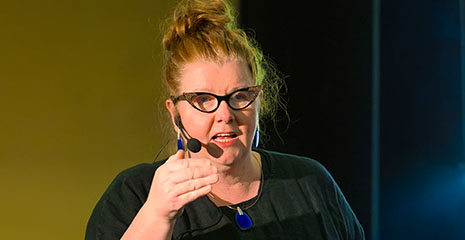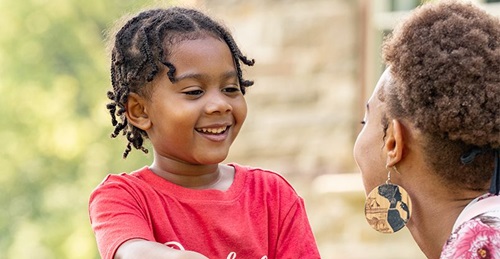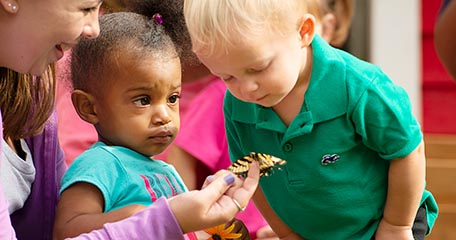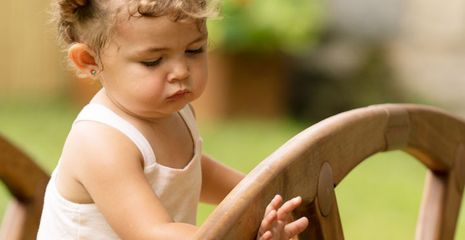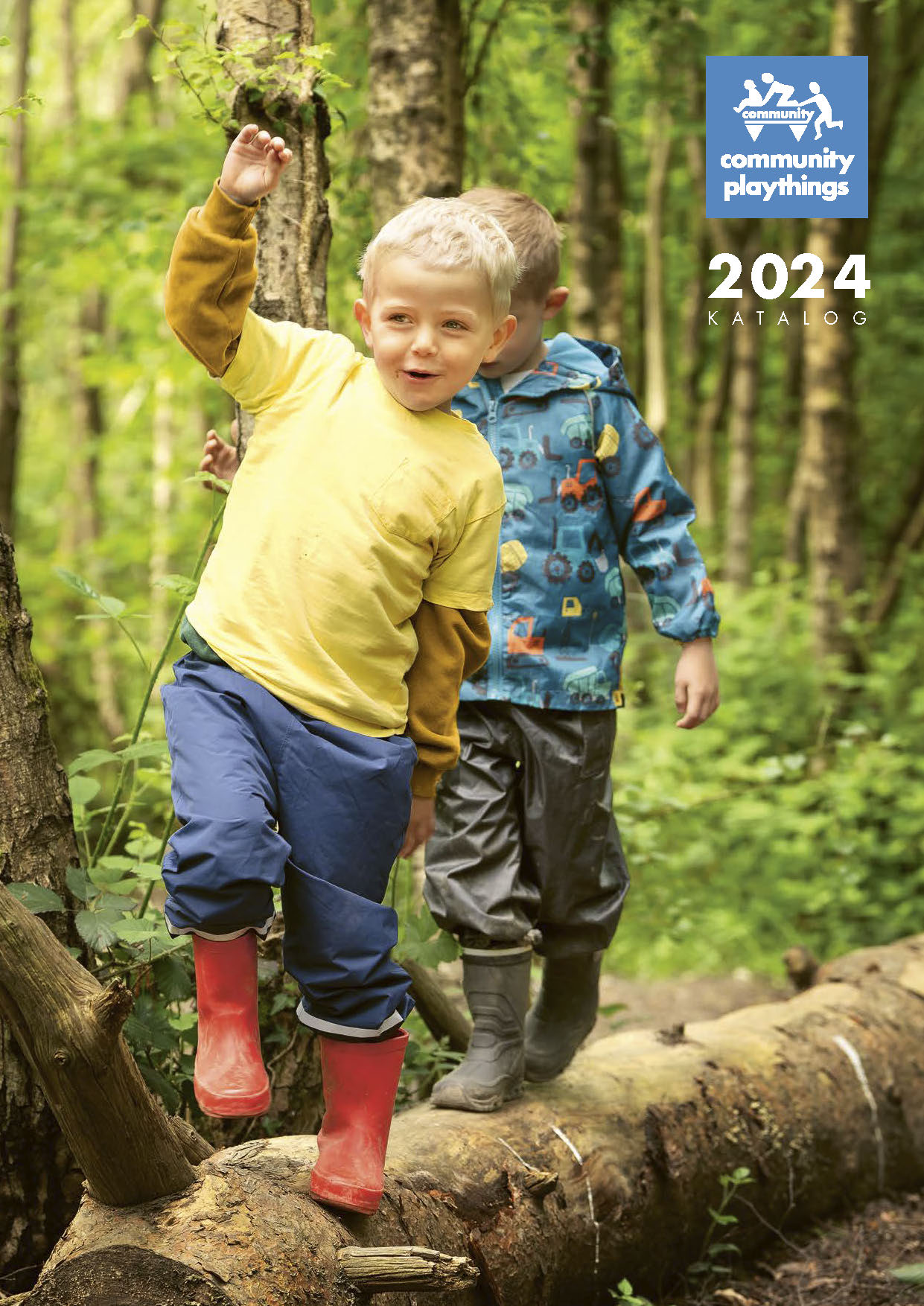Play – a right of childhood
| April 2017Throughout the world there is a growing concern that children are being exposed to a range of cultural pressures that may be damaging to their long-term health and well-being. Hence, as children grow up this affects the well-being and sustainability of larger society. What is our image of the child and childhood? How can we ensure we are promoting the form of adult life that we value and wish to perpetuate?
Starting at the beginning
The beginning actually starts before birth. We now know, through advances in epigenetic research, that genes respond to toxic stress, nutritional problems and other negative influences. This underscores the importance of providing supportive and nurturing experiences for young children from conception throughout the early years of childhood, when physical and neurological development is most rapid. It is therefore in society’s interest to strengthen the foundations of healthy body and brain architecture in all young children. This will maximise the return on future investments in education, health, and societal well-being. It is also in society’s interest to ensure that we are nurturing the child’s creative spirit.
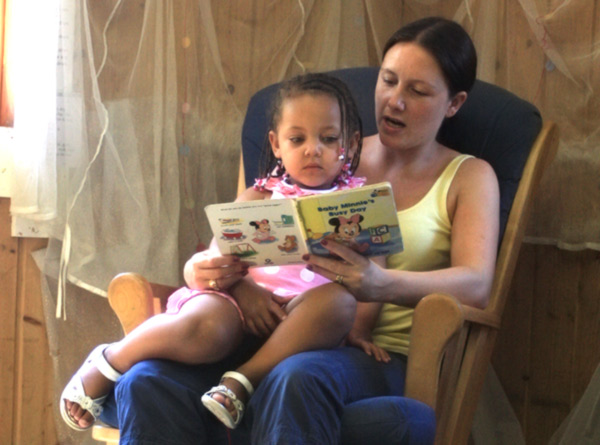
The role of nurture
To a certain extent our development is programmed by our genetic codes, but human beings are primarily social animals and need nurture in order to thrive. Just as a plant needs water and light, so a child needs the right environmental conditions in which to grow. This includes loving, consistent and supportive relationships with key others. It matters to the child to feel special and unconditionally loved, particularly so within their first relationships. We know that strong early attachment helps children develop the capacity for secure, empathic, peaceful, and enduring relationships that follow them into adulthood. The impact of negative early attachment experiences can be carried with us through our lifetimes.
It is not just parental relationships that matter. Children need the company of emotionally mature and empathic adults that understand sensory as well as verbal language. This is particularly so for their first early carers and teachers who have the responsibility of literally shaping the experiences children will absorb into their evolving personalities. Negative experiences at this stage can profoundly impact the child’s desire to continue exploring learning challenges within the environment – and can compromise his or her intrinsic sense of self-worth.
Pattern and meaning-making
From the moment they are born, children have certain innate needs that they will seek to fulfil in order to feel whole. To do so they need to interpret, communicate and seek to make sense of their experiences. Over the first years of their development, children worldwide exhibit the same impulses and sensitivities.
Neural circuits are constructed and re-enforced by regular use. There seems to be some form of pre-programmed sensitivity to certain elements within the environment. For example, newborn babies throughout the world demonstrate identical patterns of seeking out faces in preference to any other stimuli, and this happens within half an hour of birth. What is more, there seem to be critical periods of time when this hyper-sensitivity of the brain to certain experiences is at its peak and it can process information in that area with greater efficiency than it will be able to do at any point in its life again. These “sensitive periods” have been recognised by numerous experts, both past and current.
Playfulness
Play shapes children’s brains and strengthens their competencies. Play allows them to spontaneously experiment with their learning and emotions without worrying about pre-determined outcomes. It is fundamental to human creativity and well-being, and is so important for optimal child development that it has been recognised by the United Nations High Commission for Human Rights as a right of every child (Article 31). Play is vital for the enjoyment of childhood as well as children’s social, emotional, intellectual and physical development.
Over the last few decades a variety of factors have significantly reduced children's ability to play. These include changes in family structure, a more hurried lifestyle, a more risk-averse society and the increasing value applied to adult-led, rather than child-initiated, learning activities. This is serious. It is playfulness that underpins human creativity and innovation – essential in a 21st century world. We also know that playfulness has a direct correlation to human well-being. In his 2016 TED talk the psychologist Peter Gray noted that: “Over the same decades that play has been declining, we have seen a well-documented increase in all sorts of mental disorders in childhood…Based on such assessments, five to eight times as many children today suffer from major depression or from a clinically significant anxiety disorder as was true in the 1950s. And this has been a continuous, gradual, roughly linear increase over the years, very well-documented.”
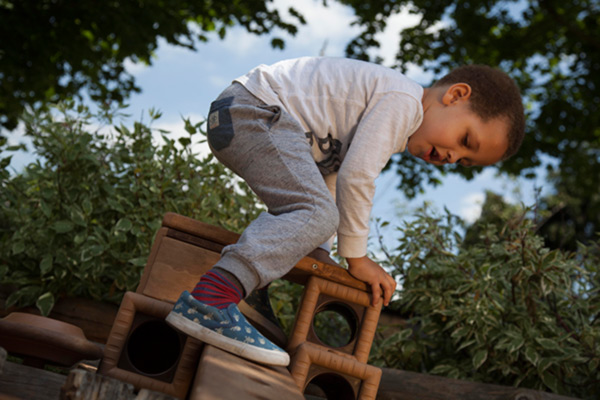
“Readiness”
All too often learning has been seen to only have real value, or even only to begin, after children start school; in recent years we have seen the increasing use of the term “school readiness”. The danger of this is that it greatly undermines the depth and richness of early learning and promotes a deficit model of the child, rather than one of power and competence. In the UK there has also been an over-focus on the importance of literacy and numeracy, whereas in reality we know that the best predictors for long-term achievement are oral language, play and playfulness, and self-regulation.
Physical maturity is critical for successful learning. Learning to control the body through balance, posture and proprioception provide the basis for control of coordination and visual-perception. Young children really need to experience physical movement – and lots of it. Children whose physical skills are under-developed in the pre-school years need more time and opportunity to develop these skills through free and structured play before reaching a stage of “readiness” for sitting and doing fine motor tasks such as reading, writing and numeracy. This is particularly so for premature babies and summerborn children who need the biological time to catch up with their peers.
We also know that brain development is prodigious during the early years and that the nature and quality of the brain’s developing architecture is determined by which circuits are reinforced and which are pruned through lack of use. Sensory pathways are the first to develop, followed by early language skills and higher cognitive functions. Connections proliferate and prune in a prescribed order: the timing is determined genetically but experiences affect whether the circuits are strong or weak. The brain is never a blank slate – every new competency is built upon competencies that came before. You cannot force the process, but you can introduce stress factors that inhibit healthy connections. If the brain’s architecture does not form as expected it can lead to disparities in learning, behavior and subsequent well-being.
The multiple languages of learning
Intelligence is an indisputable factor in making us human. It is a rich blend of capacities that are both genetically and environmentally predicted. According to the psychologist Howard Gardner these include: musical-rhythmic, visual–spatial, verbal-linguistic, logical-mathematical, bodily-kinaesthetic, interpersonal, intrapersonal, and naturalistic.
Children develop different learning strategies and ways of processing information about the environment. Depending on their unique neurology, and their different developmental stages, they may prioritise some forms of representation (i.e. visual, auditory, kinaesthetic, gustatory, olfactory) more than others. This may have a significant impact on how successfully they interpret information, especially within teaching contexts. What one child understands easily may, therefore, be a challenge to another.
We are designed to be dynamic natural learners and to each have a unique set of environmentally modifiable skills. The task of cultures should therefore be to find ways of supporting the innate intelligences of young children so that every child feels that he or she matters. To prioritise some skills, such as literacy and numeracy, over others risks undermining the complexity of human learning and the sense of self-worth of all those children whose capacities are successfully developing in other areas. Why should any child or adult that is gifted at practical or creative work feel of less value to society than others? We are simply not designed to be the same and should be cultivating and promoting systems that better celebrate the inherent diversity of human nature.
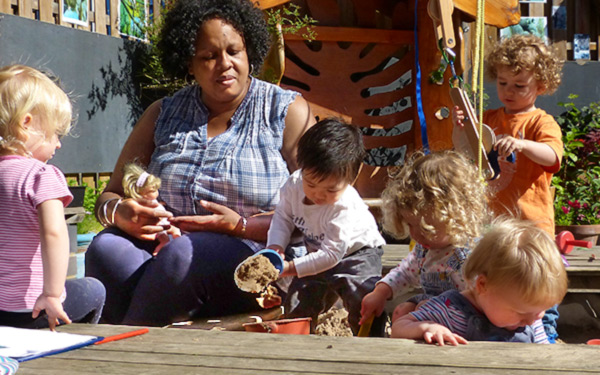
The four basic aspects
The fulfilment of physical, emotional, mental and spiritual needs is fundamental to human well-being. As primarily social beings, children develop both internal and external motivations that help them fulfil their needs and form their personalities. We are profoundly influenced by the worlds of others and, depending on our experiences, we will develop a number of ways of seeing the world relating to ourselves and to the others. We each create our own map of our world that we then use to navigate our ongoing experiences.
We therefore have both an inner and an outer life that needs to be balanced and integrated in order for us to feel whole – and wholeness is an essential pre-requisite for well-being.
The spirit of the child
The core characteristics of childhood are curiosity, playfulness, wonder and joy. These draw them to steadily connect with and explore the environment. Their accomplishments must therefore always be balanced with the internal need for personal meaning-making.
Systems that focus only on external results are ignoring the vital importance of internal processes and undermine the child’s sense of wholeness. Feeling whole is a biological and psychological necessity for children as they develop their sense of self and grow into adulthood. It lies at the heart of human well-being. The structure of values, beliefs and attitudes that we develop in the early years creates the strong and permanent roots that will underpin our whole lives.

